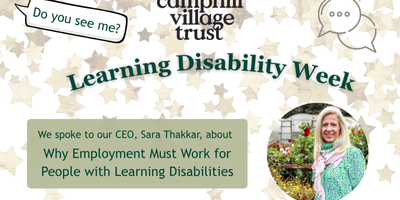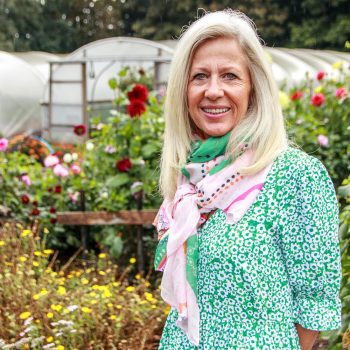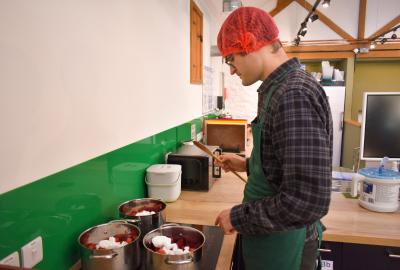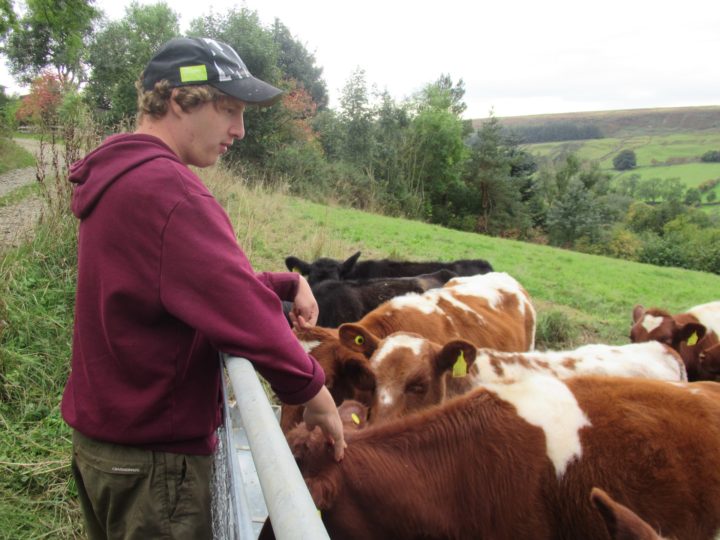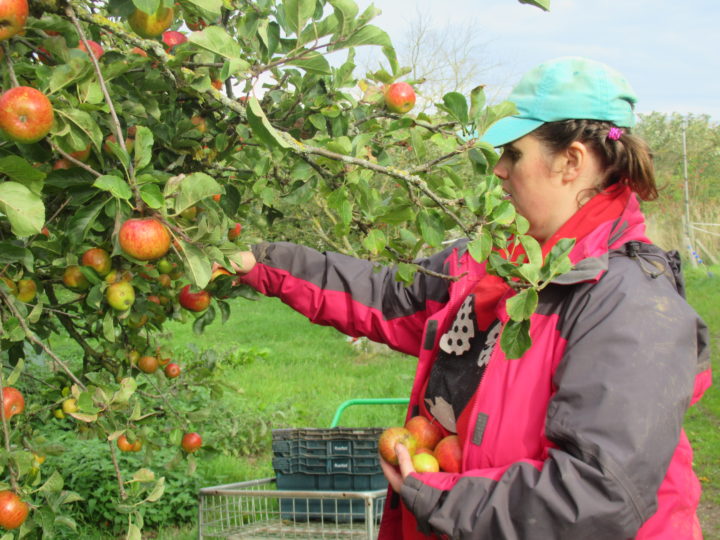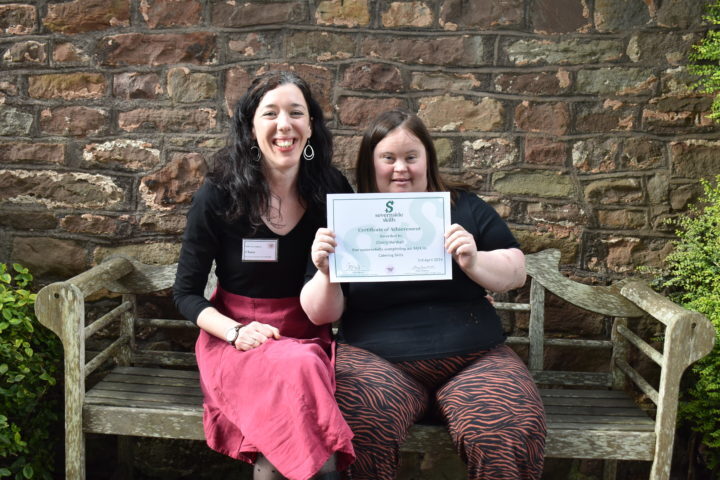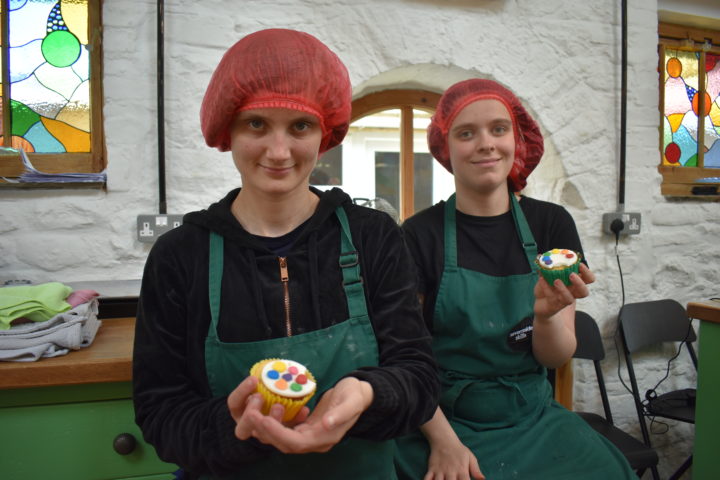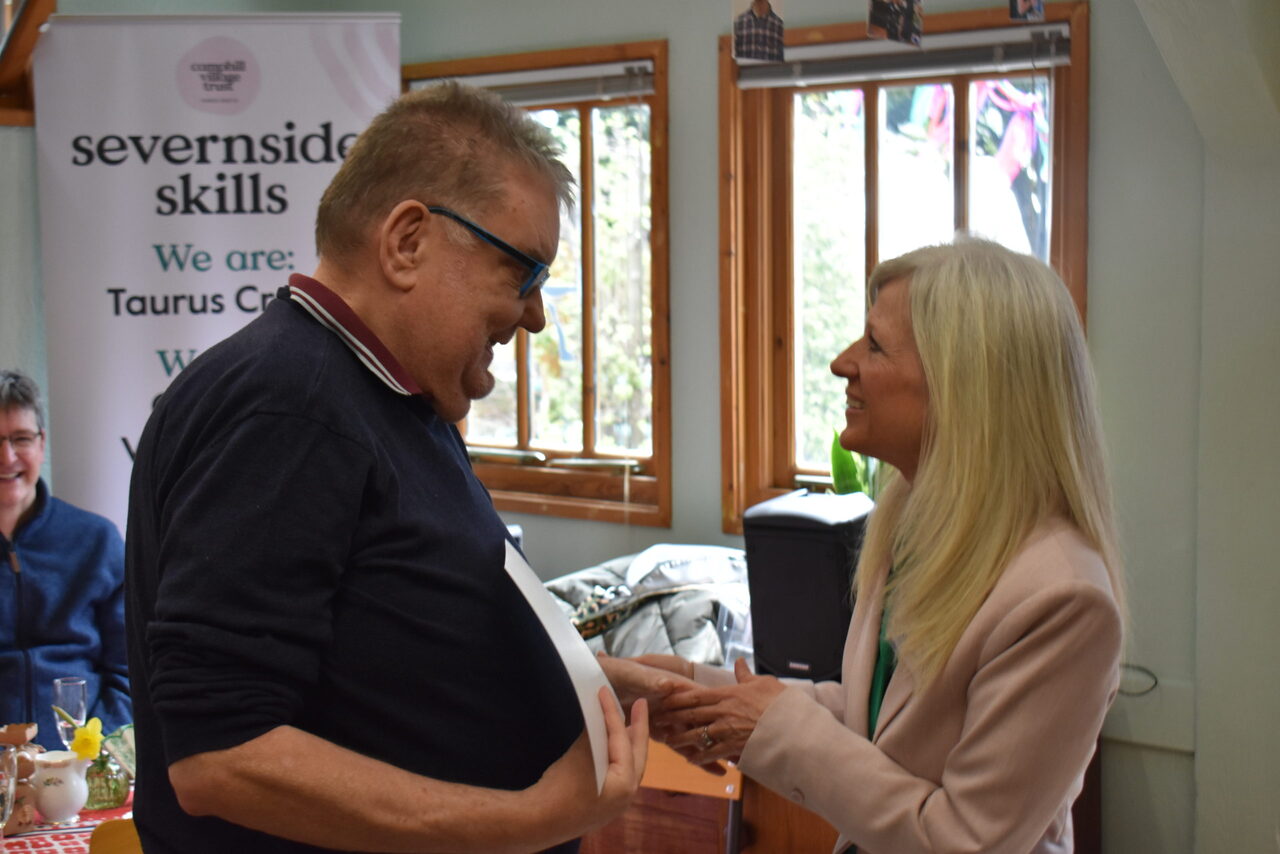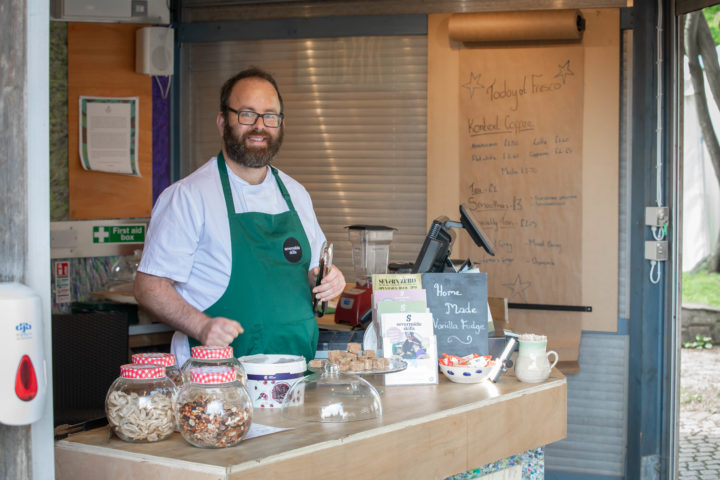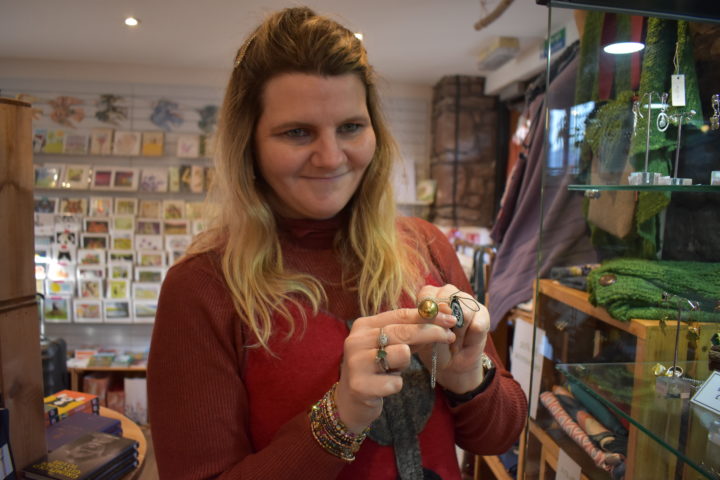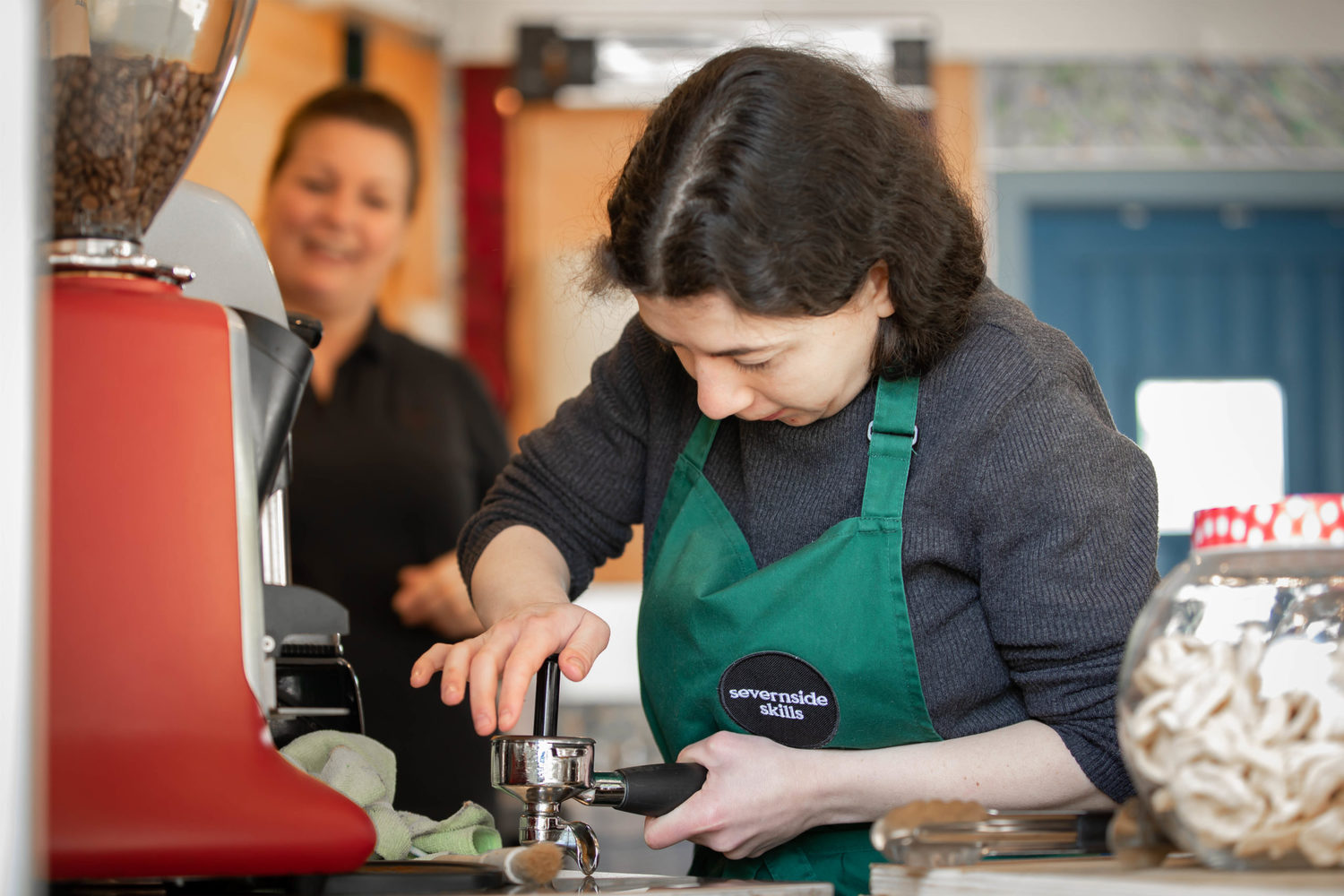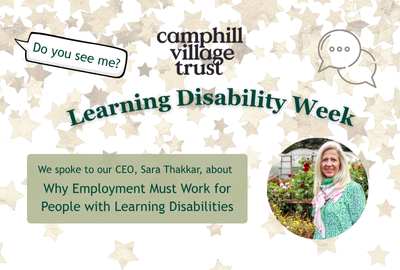People with learning disabilities are rarely seen by employers – it’s time to change that.
As Learning Disability Week draws to a close, we’re reflecting on this year’s powerful theme: “Do you see me?”, a question that speaks to visibility, value, and inclusion.
Nowhere is this more relevant than in employment. Too often, people with learning disabilities face low expectations or limited opportunities, despite having the skills, passion, and potential to thrive in a wide range of roles.
At Camphill Village Trust, we believe everyone deserves the chance to be seen for what they can do—not just the support they might need. Employment isn’t just about earning money; it’s about identity, pride, personal growth, and being part of something bigger.
We spoke to Camphill Village Trust’s CEO, Sara Thakkar, about this topic and how we can all do more to challenge stereotypes and create truly inclusive workplaces.
- Sara Thakkar
Why is employment so important for people with learning disabilities?
This is about more than just earning money. Everyone has an equal right to fund their lifestyle and live the life they choose. But employment goes further—it plays a vital role in promoting independence, inclusion, and equality.
It’s also about personal growth: the right to dream, to set goals, and to feel proud of our skills and achievements. For people with learning disabilities, employment isn’t just about income—it’s about opportunity, independence, and fulfilling potential.
How does meaningful work contribute to someone’s sense of identity, inclusion, and independence?
Meaningful work has a powerful impact on a person’s identity—on who they are. At Camphill Village Trust, we believe it’s essential because it promotes inclusion, independence, and a sense of self-worth. It builds pride, confidence, and a positive self-image, while recognising the value of each person’s contribution.
It’s also about being treated as an equal—part of something bigger than yourself.
For people with learning disabilities, the impact can be even greater, as they are too often excluded from these opportunities. Meaningful work opens the door to decision-making, which we see as a fundamental right. Co-production at the Trust is built on this belief—that everyone should have the chance to make choices and influence not only their own life, but the lives of others through their work.
What are the biggest barriers people with learning disabilities face when looking for work?
The starting point is often the employer’s attitude—how they view people with learning disabilities or other disabilities. Stereotyping is a big issue; there’s often an assumption that someone can’t do a job simply because they don’t sound or look like others.
There’s also a lack of awareness around making reasonable adjustments or thinking differently about how to support someone and bring out their strengths. Employers often make assumptions before giving someone a chance.
Even with good intentions, many employers are risk averse. Our society is very risk-focused; health and safety, liability, fears about productivity or disruption—all these worries play out in their minds.
Then there’s the issue of accessibility, especially in education and training. Even within organisations like Camphill Village Trust, we have to ask: is our training accessible to people with learning disabilities? Do we design it in a way that removes barriers?
Often, people with learning disabilities aren’t supported to follow vocational or employment pathways. There are fewer opportunities, fewer schemes, and limited access to real, competitive jobs. That results in a lack of work experience, which in turn limits CVs—and so the cycle continues. Without internships, volunteering, or part-time work, people are left out. Career guidance is often missing too.
Another challenge is the application process itself. Imagine someone with a learning disability who’s built a bit of experience—now faced with complex forms, confusing job descriptions full of jargon, and interviews they’ve never been supported to prepare for. If they’re digitally excluded, it’s even harder, since most recruitment is now online.
And even if they do get the job, where’s the ongoing support—mentoring, coaching, or help transitioning between roles? Without that, it’s hard not only to keep the job but to grow in it too.
Do you think employers are aware of the potential and talents of people with learning disabilities? Why or why not?
It’s about stereotyping and low expectations. Many employers assume that people with learning disabilities can only do low-skill or repetitive work. We hear that a lot—that the work must be simple and repetitive. There’s often no assumption that someone with a learning disability could be just as capable as anyone else. In fact, they might be even better—especially people with autism or other support needs who are often incredibly bright and have exceptional skills. But understanding is still lacking.
There’s also a belief that someone with a learning disability will need constant supervision or handholding to meet standards. While some support might be needed, this is often exaggerated without any real knowledge of what that support looks like.
Employers don’t recognise the potential because they’ve never experienced it—they’ve put barriers in place that stop it from happening. The achievements of people with disabilities aren’t highlighted in the same way as others. That lack of visibility affects public perception and leaves few role models to challenge assumptions.
In many industries, speed and fast-paced delivery are prioritised, so employers overlook people with huge skills simply because they don’t fit that narrow model.
What needs to change in society or within businesses to make employment truly inclusive?
From everything I’ve said so far, it really comes down to shifting mindsets. The key is changing attitudes, improving systems, and creating supportive environments where everyone has a fair chance to succeed—to be their best, follow their dreams, and be treated equally.
That links directly to what we’ve been talking about: public awareness, attitudes, education, early opportunities, inclusive hiring practices, training, and flexible, supportive workplaces—the same things any of us would want to help balance our work and personal lives.
But it also takes leadership. Change starts at the top. People like me, in leadership roles, have a responsibility to make sure organisations like Camphill Village Trust are addressing these issues—clearly, loudly, and with purpose. It’s about shifting stigma, changing systems, and rethinking the way we work.
What would you say to employers who want to be more inclusive but don’t know where to start?
What I’d say is—start small, be practical, and build from there. Employers who launch big, all-singing, all-dancing strategies often find they don’t work. It’s far better to begin with real understanding of co-design and co-production.
Work with people who can add value to your thinking. Raise awareness internally—rethink how you deliver training, and use real voices and experiences, as we do at Camphill Village Trust. Involve people with lived experience—both those we support and staff with disabilities. I think there’s an opportunity to amplify the voices of staff with disabilities more in our co-production work.
Employers should also connect with the right partners—whether that’s disability job coaches, employment providers, or charities like ours—who can support inclusive recruitment, onboarding, training, and building good practice. It’s about failing fast, learning fast, and growing from there.
Think about how you adapt your recruitment process, make reasonable adjustments, and start with a single role or pilot. Be open and transparent about your inclusivity goals and how staff will be supported—and involved—in co-producing the journey.
That’s how employers can start making inclusion a reality.
How does Camphill Village Trust support adults with learning disabilities to prepare for and access employment opportunities?
At Camphill Village Trust, we see people with ability—not disability. Everyone has abilities; they’re just different and expressed in different ways. That shift in perspective is vital—not just for us as a charity, but for the wider sector and for society. The word “disability” itself begins with a negative. But when we recognise that everyone has strengths and potential, it changes the conversation.
Our approach is built around preparing people for access to employment through a whole-person pathway. We blend training, practical experience and community engagement to help people with learning disabilities take steps into meaningful work.
One of the ways we do this is through our Nature-based Therapies and Skills programme. Each of our communities offers nature-orientated, craft-focused activities—farming, gardening, weaving, woodworking and more. These provide accessible, hands-on roles that build real-world skills in areas like retail, customer service and horticulture—often without people even realising they’re gaining those transferable skills.
We also offer supported work and volunteering opportunities within our own cafés, shops, studios, and bakeries. These are real roles, delivered in tailored, compassionate environments, where people are supported by committed colleagues to gain authentic experience. It’s not just about “practising”—it’s about doing.
We work with local colleges and offer vocational qualifications too. A great example is our partnership with Severnside Skills at Taurus Crafts, which provides structured learning and progression routes for people with different support needs.
Our support is highly individualised and co-produced. Everyone is involved in shaping their own employment journey—deciding what they want to do, what they want to learn, and how they want to work. That co-production ethos empowers people to make meaningful choices with dignity and direction.
And then there are our social enterprises and community-based “real jobs.” These give people the chance to gain authentic, paid or voluntary experience that helps build a strong CV and opens the door to external employment. Often, it’s all close to home—on a farm, in a café, or in a shop—within their own community. That local, supported environment makes it easier for people to build confidence, develop skills, and feel safe while stepping into the world of work.
Ultimately, it’s our people—our staff, support workers, and the inclusive environments they create—that make this possible. Our values of independence, empowerment, and co-working are at the heart of everything we do. Together, we create communities where people with learning disabilities can flourish, feel proud of the work they do, and be confident in who they are.
Thank you, Sara!
Creating inclusive employment opportunities for people with learning disabilities is about more than just opening doors; it’s about changing mindsets, breaking barriers, and truly seeing each person’s unique abilities and potential. By valuing diversity and creating supportive environments, we can help build communities and workplaces where everyone feels recognised, respected, and empowered to grow.
At Camphill Village Trust, this commitment drives everything we do. Together, we can ensure that the question “Do you see me?” is answered with a yes—because everyone deserves to be seen, heard, and valued.

